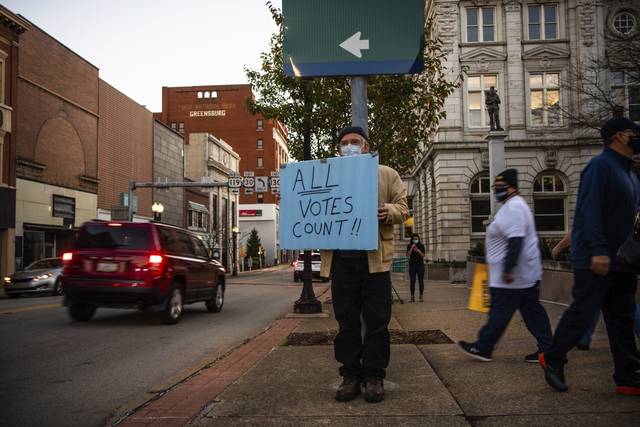Free and fair elections are a relative novelty. Even in America, where we have always had a Republican democracy, for much of our history a relatively small portion of Americans could vote. It was not just that women and slaves lacked the franchise; most men could not vote, unless they were relatively well off.
But for much of the last 50 years, anyone over the age of 18 who was not a felon could vote. That makes it even more remarkable that turnout in the 2020 election is already the highest in 50 years, and may, once all votes are counted, be the highest since 1908, before women, most African Americans or college-age students were eligible.
But this election involved more than just turnout. We have witnessed an unprecedented effort to allow millions of citizens to vote safely and legally during a global pandemic that presents real health risks to many voters. Our local and state elections officials should be commended for working hard to ensure a fair and honest election. Instead, in some circles, they have been condemned for overseeing a fraudulent election without meaningful evidence.
Now there probably have been instances of voter fraud, as there are in every election. After just about every election, a few people are prosecuted for violating the law. And there are simple, relatively easy steps states could take to reduce the possibility of voter fraud, which could help rebuild public trust in our government. For example, every locality should require voters to show a state-issued ID to vote and provide an ID for free.
It is also true that campaigns have the right to ask election boards and the courts to investigate accusations of suspicious circumstances. The Trump campaign has a legal right to ask for a recount in Wisconsin, just as Democrats have asked for recounts in the past.
However, there is a world of difference between demanding a recount and making sweeping claims of “stolen elections” without evidence. There have been accusations of Pennsylvania poll workers throwing ballots away, poll workers conning voters into using sharpies and then invalidating ballots, states “magically” finding 138,000 ballots for one candidate, Wisconsin having more votes than registered voters and Trump ballots being burned.
These accusations have spread like wildfire through social media, but on inspection, all turned out to be false. The person claiming to be a poll worker throwing ballots away was not actually a poll worker; you can use sharpies on absentee ballots in Arizona; Michigan did not magically find 138,000 votes for Biden; Wisconsin allows same day voter registration, so they definitely did not have more voters than registered voters; and the Virginia, ballots that were burned were sample ballots, not Trump ballots. Our elections officials have had to fight a two-front war, simultaneously trying to count more mail-in ballots than ever, while keeping their own workers safe in a pandemic and defending themselves against a barrage of false claims.
President Trump’s repeated claims, without evidence, that the election is being stolen, or that the only way he could lose is if the Democrats cheated, are false and undermine public faith in the democratic process.
The truth is that Trump spent months before the election claiming, without evidence, that voting by mail would be fraudulent and encouraging his supporters to vote in person. Predictably then, Trump did better among Election Day voters, and slowly lost ground in close states as mail ballots were counted. For more than a week, Trump has repeatedly tweeted that he is being cheated, but there is no actual evidence of this.
Trump and Republicans are well within their rights to ask for patience, and demand all votes be counted. But it is reckless and dangerous and undermines confidence in our democracy, at home and abroad, to make unsubstantiated claims of fraud. Part of life, part of growing up, is learning to deal with failure — with losing. Losing with grace is a skill some of our political leaders should practice more.
Caleb Verbois is a professor of American politics at Grove City College.








